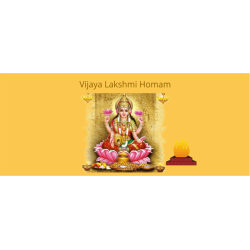

There is a long history of scholarly disagreement on the meaning of mantras and whether they are really instruments of mind, as implied by the etymological origin of the word mantra. The literal meaning or meaninglessness of mantras Staal clarifies that mantras are not rituals, they are what is recited or chanted during a ritual. In some schools of Hinduism for example, suggests Gonda, mantra is sakti (power) to the devotee in the form of formulated and expressed thought. There is no universally applicable uniform definition of mantra because mantras are used in different religions, and within each religion in different schools of philosophy. Jan Gonda, a widely cited scholar on Indian mantras, defines mantra as general name for the verses, formulas or sequence of words in prose which contain praise, are believed to have religious, magical or spiritual efficiency, which are meditated upon, recited, muttered or sung in a ritual, and which are collected in the methodically arranged ancient texts of Hinduism. Bharati defines mantra, in the context of the Tantric school of Hinduism, to be a combination of mixed genuine and quasi morphemes arranged in conventional patterns, based on codified esoteric traditions, passed on from a guru to a disciple through prescribed initiation. Zimmer defines mantra as a verbal instrument to produce something in one’s mind. Farquhar concludes that mantras are a religious thought, prayer, sacred utterance, but also believed to be a spell or weapon of supernatural power. Mantras are structured formulae of thoughts, claims Silburn. There is no generally accepted definition of mantra. Mantras, suggests Frits Staal, may be older than language. Mantras are neither unique to Hinduism, nor to other Indian religions such as Buddhism similar creative constructs developed in Asian and Western traditions as well. The Chinese translation is zhenyan 眞言, 真言, literally "true words", the Japanese on'yomi reading of the Chinese being shingon (which is also used as the proper name for the prominent esoteric Shingon sect).Īccording to Bernfried Schlerath, the concept of sātyas mantras is found in Indo-Iranian Yasna 31.6 and the Rigveda, where it is considered structured thought in conformity with the reality or poetic (religious) formulas associated with inherent fulfillment. By the middle Vedic period-1000 BC to 500 BC-claims Frits Staal, mantras in Hinduism had developed into a blend of art and science. Scholars consider mantras to be older than 1000 BC. mantram) consists of the root man- "to think" (also in manas "mind") and the suffix -tra, designating tools or instruments, hence a literal translation would be "instrument of thought". Mantras written on a rock near Namche Bazaar Nepal Some mantras have no literal meaning, yet are musically uplifting and spiritually meaningful. In more sophisticated forms, mantras are melodic phrases with spiritual interpretations such as a human longing for truth, reality, light, immortality, peace, love, knowledge, and action. At its simplest, the word ॐ (Aum, Om) serves as a mantra. They are typically melodic, mathematically structured meters, believed to be resonant with numinous qualities. Mantras come in many forms, including ṛc (verses from the Rigveda for example) and sāman (musical chants from the Sāmaveda for example). In other schools of Hinduism, Buddhism, Jainism or Sikhism, initiation is not a requirement. In this school, mantras are considered to be a sacred formula and a deeply personal ritual, effective only after initiation.

The use, structure, function, importance, and types of mantras vary according to the school and philosophy of Hinduism and of Buddhism. Similar hymns, chants, compositions and concepts are found in Zoroastrianism, Taoism, Christianity, and elsewhere. In Japanese Shingon tradition, the word Shingon means mantra. Mantras now exist in various schools of Hinduism, Buddhism, Jainism and Sikhism. The earliest mantras were composed in Vedic Sanskrit by Hindus in India, and are at least 3000 years old. A mantra may or may not have syntactic structure or literal meaning. Problems playing this file? See media help.Ī " mantra" ( / ˈ m æ n t r ə, ˈ m ɑː n-, ˈ m ʌ n-/ ( Sanskrit: मंत्र) ) is a sacred utterance, a numinous sound, a syllable, word or phonemes, or group of words in Sanskrit believed by practitioners to have psychological and spiritual powers.

A mantra chant set to Indian classical music (6 minutes 19 seconds)


 0 kommentar(er)
0 kommentar(er)
